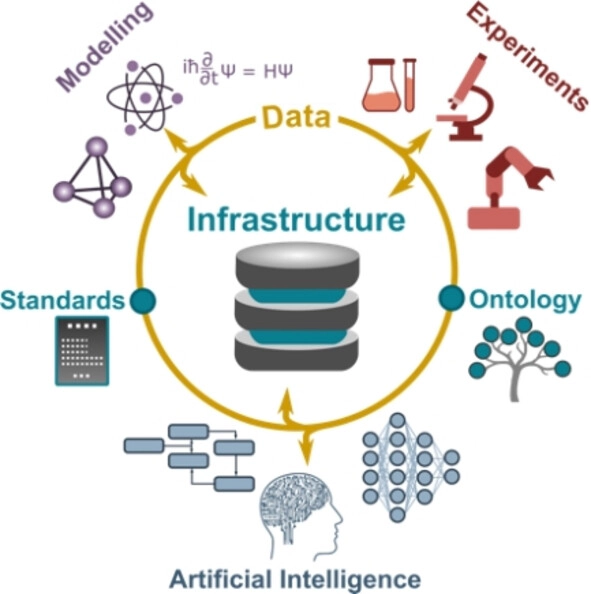 Image credit: Batteries & Supercaps
Image credit: Batteries & SupercapsAbstract
Open access to research data is increasingly important for accelerating research. Grant authorities therefore request detailed plans for how data is managed in the projects they finance. We have recently developed such a plan for the EU−H2020 BIG-MAP project—a cross-disciplinary project targeting disruptive battery-material discoveries. Essential for reaching the goal is extensive sharing of research data across scales, disciplines and stakeholders, not limited to BIG-MAP and the European BATTERY 2030+ initiative but within the entire battery community. The key challenges faced in developing the data management plan for such a large and complex project were to generate an overview of the enormous amount of data that will be produced, to build an understanding of the data flow within the project and to agree on a roadmap for making all data FAIR (findable, accessible, interoperable, reusable). This paper describes the process we followed and how we structured the plan.